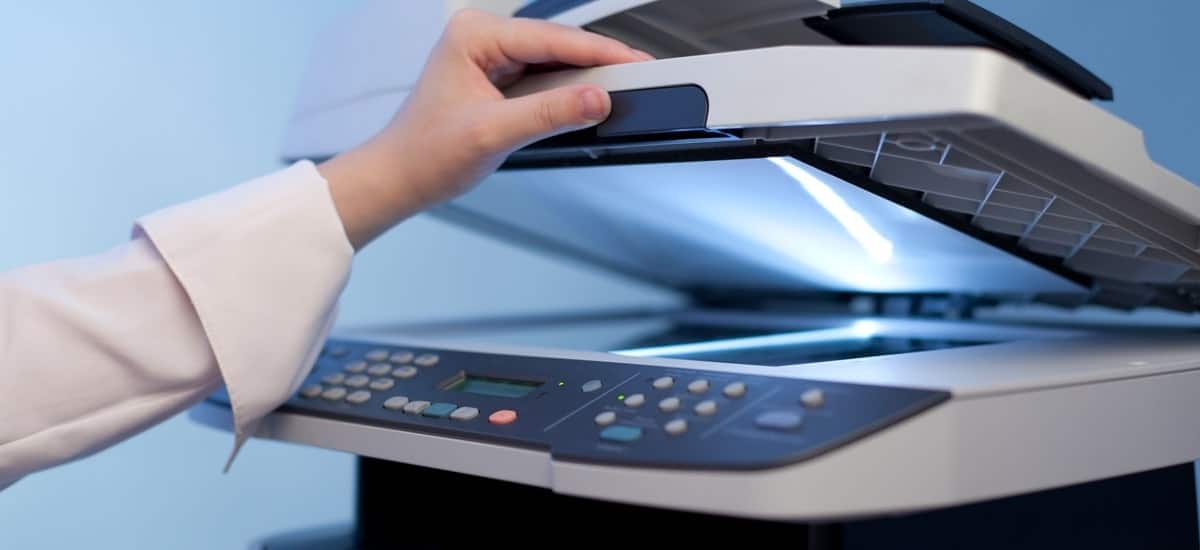Leasing a Printer vs Buying: What Should Your Business Be Doing in 2025?

Renting a printer may be the perfect choice for one enterprise; buying the perfect choice for another.
Leasing A Printer: Introducing Managed Print Services
A printer lease is more than just a simple rental agreement on a piece of equipment.
Companies like Copier Depot offer printer leases as part of a program called managed print services, an end-to-end service solution designed to take all the guesswork and headaches out of your document processing infrastructure.
In addition to renting a printer, managed print services may include:
- Repairs and preventative maintenance.
- Replacement supplies like paper, ink, and/or toner.
- Tracking of printer usage data by department.
- On-site support and troubleshooting.
Types Of Business Equipment Leases
There are two main flavors of managed print service leases-Operating Leases and Capital Leases.
Operating Leases
These include more of a pure printer rental agreement and are the more common selection.
The initial investment and monthly payments are typically lower, and the lease can be upgraded to newer equipment models.
Business owners choose an operating lease when they don’t ever want to own their printer or always want to have cutting-edge printers.
Capital Leases
Capital leases closely resemble a loan secured by the printer, similar to a car loan or mortgage.
The monthly payments are higher, but a portion of the payment goes toward paying down the principal balance of the loan. At the end of the term, the company can acquire full title to the copier, usually for $1 (hence the industry name “$1-Buyout Leases”).
For companies that eventually want to own their printer, capital leases cost more upfront, but less in the long run, and you end the lease term with a business asset rather than nothing.
Should You Lease A Copier For Your Business?
Especially popular for newer businesses operating on smaller margins, the lower upfront costs of leasing a printer or copier can be crucial to preserving cash flow at critical milestones.
Printer leases can also be ideal for companies that want the convenience of managed print services, or that want to regularly update their printer to the newest model and avoid obsolescence.
Benefits Of Leasing
- Managed print services with end-to-end service and supplies included.
- Lower up-front rental costs.
- Access to cutting-edge commercial printer/copier technology.
Drawbacks Of Leasing
- More expensive in the long term.
- The money is gone-you’re not building equity or buying an asset.
- Long-term contract, with less flexibility.
Should You Purchase A Copier For Your Business?
Larger enterprises with cash to spare might consider buying a commercial multifunction printer.
These heavy-duty, feature-rich printers are more costly than consumer printers, but they are durable and have the capacity a major enterprise requires.
While the purchase price of a commercial copier may be too big of a hit for a new business, over time the payments on a printer lease add up to more than the cost of the same equipment brand-new.
When you buy a printer outright, it becomes an asset on the balance sheet of your business.
This can be advantageous at tax time, and also help you recoup some of the purchase price by selling the printer when it comes time to get a new one.
One of the big trade-offs is that a printer purchase includes fewer dealer and manufacturer services compared to a lease.
Benefits Of Purchasing
- You are buying an asset, not pouring money into rent.
- Cheaper over the long term.
- Lack of monthly payment means more cash flow.
- Tax advantages.
Drawbacks Of Purchasing
- Bigger upfront expense.
- The machine could become obsolete.
- Less comprehensive service and repair agreement.
- Supplies like paper, toner, and ink must be purchased separately, rather than being included in managed print services.
What You Should Know About Taxes
Expenses relating to both leased and purchased printers can be claimed as Section 179 deductions on the company’s tax returns, but leases and purchases have different tax implications.
Some or all of the monthly expenses of managed print services may be written off as business expenses.
Like most business assets, a purchased printer is considered a “depreciating asset” for tax purposes. That means that the company can claim a portion of the printer’s value as an expense every year, even though depreciation doesn’t impact the company’s cash flow because no money is leaving the coffer.
As always, consult a trusted tax specialist to determine what you can legally deduct.
Leasing Vs Buying: What We Recommend
It’s different for every company, but leasing is a popular alternative to buying outright.
We recommend leasing because of the tax advantages from depreciation among other budgetary factors and our ability to find the best rates and customer service.
Still Not Sure?
Call Copier Depot, the most trusted name in Central Texas for commercial copier sales and leases of Konica Minolta, Muratec, and Ricoh office equipment.
We can help you choose a business copier that’s right for you and tailor a copier solution to your organization’s specific needs.
